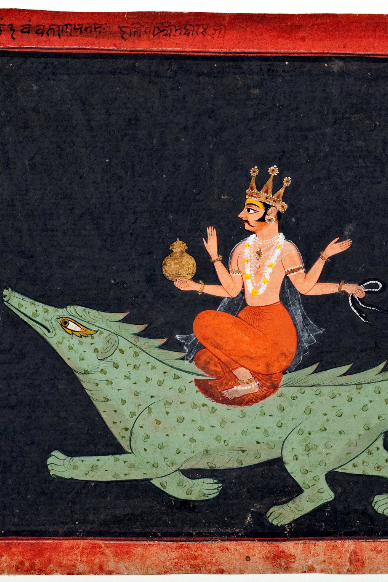Varuna


Varuna is a Vedic deity associated first with sky, later with waters as well as with Ṛta (justice) and Satya (truth).He is found in the oldest layer of Vedic literature of Hinduism, such as the hymn 7.86 of the Rigveda. He is possibly one of the earliest Indo-Aryan triads with parallels to a Avestan deity, possibly Iranian Ahura Mazda. His streak of demonic violent tendencies, according to Hindu mythology, led to his demotion and Indra taking away most of his powers.
In the Hindu Puranas, Varuna is the god of oceans, his vehicle is a Makara (part fish, sea creature) and his weapon is a Pasha (noose, rope loop). He is the guardian deity of the western direction. In some texts, he is the father of god Brahma and of Vedic sage Vasishtha.
Varuna is found in Buddhism, for example as Suiten in Japanese Buddhist mythology. He is also found in Jainism.
Varuna is related to the root vṛ ("vri") which, states Adrian Snodgrass, means "to surround, to cover" or "to restrain, to check". With uṇan, it gives "Varuna" meaning "he who covers or binds all things".The sea or ocean is the perceived manifestation of him, while the universal law or Ṛta (dharma) is the abstract binder which connects all things.His name is related to Indo-European root "uer" or "to bind". In later Hindu literature, the term Varuna evolves to mean god of waters, the source of rains and the one who rules over the Nagas (divine sea serpent) – myths important in Hinduism and Buddhism.